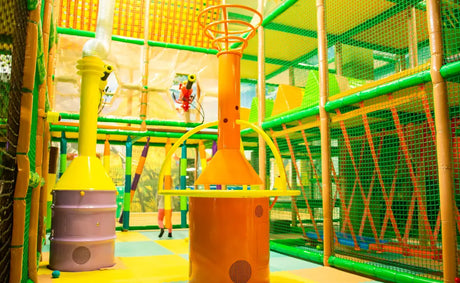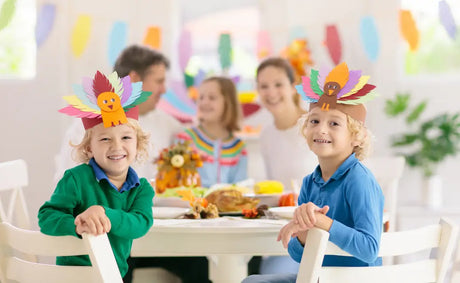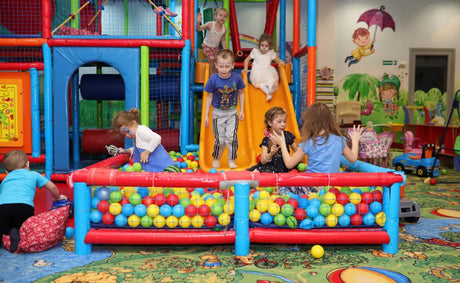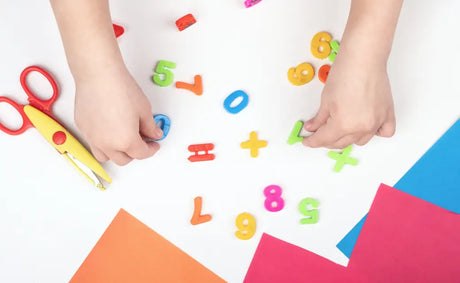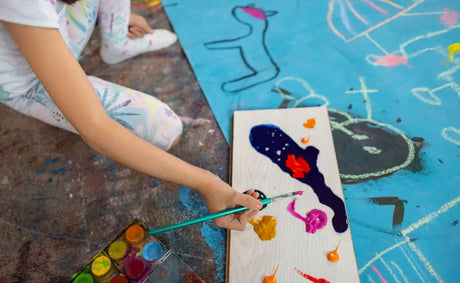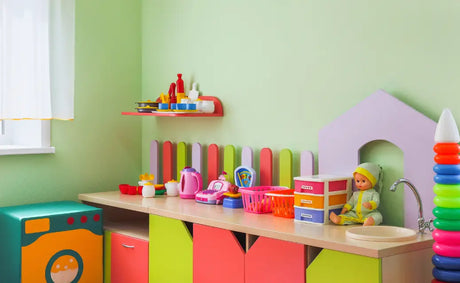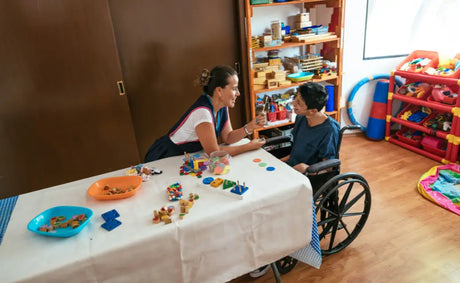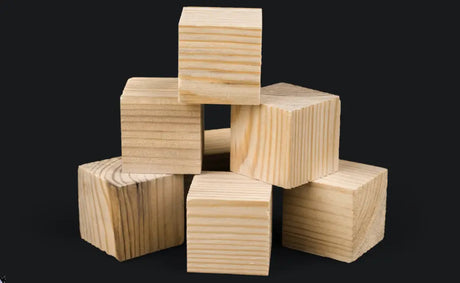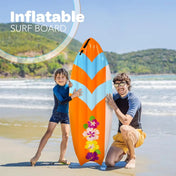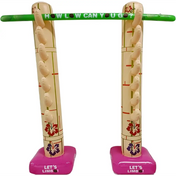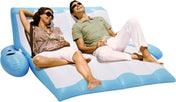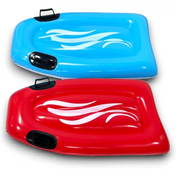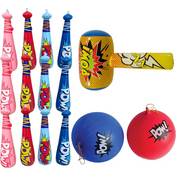Teaching basic math skills through interactive play is a great way to help children understand important concepts in a fun and engaging manner. Using toys to introduce math makes learning more enjoyable and helps kids build confidence in their abilities as they explore numbers, shapes, and problem-solving.
When selecting the best toys for teaching math, it's important to consider their educational value, age appropriateness, and level of interactivity. The right toys can make learning math exciting and help children grasp fundamental concepts in a hands-on, playful way.
1. Montessori Math Manipulatives

Montessori math manipulatives, such as number rods, golden beads, and bead frames, are designed to help children understand math concepts through hands-on learning. These tools allow kids to explore counting, addition, subtraction, and place value in a concrete, visual way.
By using these manipulatives, children can physically see and touch the numbers they are working with, which makes abstract concepts easier to understand. The benefits of hands-on learning with Montessori materials include building a strong math foundation and boosting confidence in math skills through interactive play.
2. Math Board Games

Popular math board games like “Monopoly Junior,” “Sum Swamp,” and “Zingo Math” make learning math fun by incorporating counting, addition, and subtraction into the gameplay. These games allow children to practice math skills while enjoying the excitement of competition or collaboration with others.
Learning math through board games provides the advantage of both competitive and cooperative play formats. Children can improve their math abilities in a relaxed and engaging environment, all while building important social skills such as teamwork and strategic thinking.
3. Number and Shape Puzzles

Number and shape puzzles, such as jigsaw puzzles with numbers, shape-sorting puzzles, and interlocking number blocks, offer a fun way for kids to learn basic math concepts. These puzzles help children recognize numbers, shapes, and spatial relationships as they fit pieces together.
Playing with puzzles also supports problem-solving skills and fine motor development. As children work to complete the puzzles, they improve their ability to think critically, while also enhancing hand-eye coordination. These puzzles are a great way to combine learning and play in an engaging, hands-on format.
4. Counting Bears and Counters

Counting bears, counting chips, and similar manipulatives are perfect for helping young learners develop basic counting and sorting skills. These hands-on tools make it easier for children to understand concepts like one-to-one correspondence, where each object represents one number, and they can also be used for simple arithmetic activities like addition and subtraction.
By providing a visual and tactile experience, counting bears and counters help reinforce early math skills. Children can physically move the objects as they count, which strengthens their understanding of numbers and makes learning more engaging.
5. Interactive Math Apps and Tablets

Educational apps and tablet programs, like "Endless Numbers" and "SplashLearn," offer fun and engaging ways for kids to learn math. These digital tools feature interactive animations, games, and activities that help teach basic math concepts such as counting, addition, and subtraction.
What makes these tools so effective is their use of adaptive learning, which adjusts the difficulty based on a child’s progress. Technology can complement traditional learning methods by providing personalized practice, making math more enjoyable and accessible for young learners.
6. Math-related Building Blocks

Building block sets, like LEGO Education kits, offer a creative way to incorporate math concepts into construction play. These sets can be used to teach patterns, symmetry, measurement, and even basic arithmetic as children build and design structures.
By combining creativity with mathematical thinking, building blocks help kids develop problem-solving skills while having fun. The hands-on nature of these activities encourages children to explore math engagingly and interactively, making it easier for them to grasp important concepts while boosting their creativity.
7. Abacus Sets

Abacus sets come in various styles, including traditional wooden abacuses and modern variations, offering a hands-on way for kids to explore math. Using an abacus helps children visualize numbers and perform basic arithmetic operations like addition and subtraction by moving beads to represent values.
Historically, the abacus has played an important role in math education, dating back thousands of years. Despite its age, the abacus remains a relevant tool today, helping young learners build a strong foundation in math by encouraging mental calculations and visualization skills.
8. Math Storybooks and Educational Kits

Math storybooks and educational kits combine engaging narratives with math concepts, making learning fun and relatable. These storybooks and kits introduce math through storytelling, helping kids see how math applies to real-world situations.
A popular example is "The Very Hungry Caterpillar," which incorporates counting and sequencing into its playful narrative. By connecting math with everyday scenarios, these resources help children grasp mathematical ideas in a way that feels natural and enjoyable. These storybooks and kits are perfect for making math both interactive and meaningful for young learners.
9. Magnetic Numbers and Symbols

Magnetic numbers, symbols, and math boards offer a hands-on way for children to practice math skills. These manipulatives allow kids to physically move numbers and symbols around, helping them solve math problems and explore number relationships.
Magnetic math tools are perfect for practicing basic operations like addition, subtraction, and even multiplication. Their ease of use and versatility make them great for interactive learning, giving children the freedom to experiment and play with numbers while reinforcing key math concepts in a fun and engaging way.
10. Educational Flashcards

Educational flashcard sets that focus on basic math skills, like addition, subtraction, multiplication, and division, are great tools for helping children strengthen their math abilities. These flashcards support memorization and encourage quick recall of math facts through repetitive practice.
Flashcards can be used effectively in both solo and group learning environments. For solo practice, children can quiz themselves to build speed and confidence, while in group settings, flashcards can be used for fun, competitive games. Using flashcards regularly helps children retain important math concepts and improve their problem-solving skills.
Conclusion
Using toys to teach basic math skills offers many benefits, making learning both enjoyable and effective for children. Toys that incorporate math concepts engage kids in hands-on activities, helping them build a strong foundation in math while having fun.
When choosing educational toys that support math learning, it's important to look for features like interactivity, age appropriateness, and educational value. By exploring a variety of toys, parents, and educators can find the best fit for different learning styles and age groups, helping children succeed in their math journey.
Check out our exciting collection of trendy and unique novelty toys! Discover fun gifts and accessories by visiting our novelty toy collection at 4E's Novelty today!



